Theater 2014-15: American Blues parlays pluck and alliance to create new take on ‘Native Son’
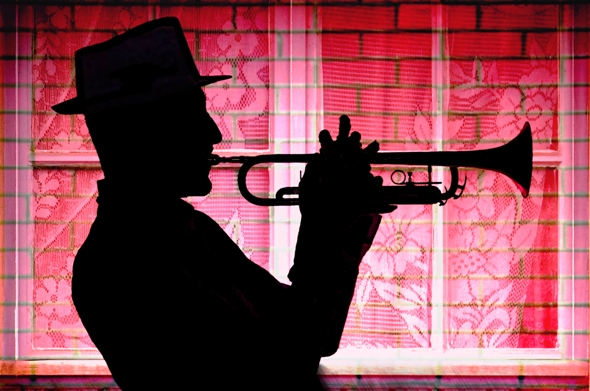 13th in a series of season previews: Collaboration with Court Theatre spawns fresh adaptation of Richard Wright’s novel to open season; bookend is Warren Leight’s discordant jazz saga “Side Man.”
13th in a series of season previews: Collaboration with Court Theatre spawns fresh adaptation of Richard Wright’s novel to open season; bookend is Warren Leight’s discordant jazz saga “Side Man.”
By Lawrence B. Johnson and Nancy Malitz
Season themes can sometimes seem like a loose fit, but American Blues Theater’s 2014-15 overarching concept of “Lost and Found” looks well-tailored from a world-premiere adaptation of Richard Wright’s tragic “Native Son” to Warren Leight’s “Side Man,” a dark riff on family alienation that infects the life of a jazz trumpeter.
But producing artistic director Gwendolyn Whiteside also offers a larger label that sums up American Blues and its 29-year history: “We’ve got pluck. We don’t have a lot of money, but we go for the stars.”
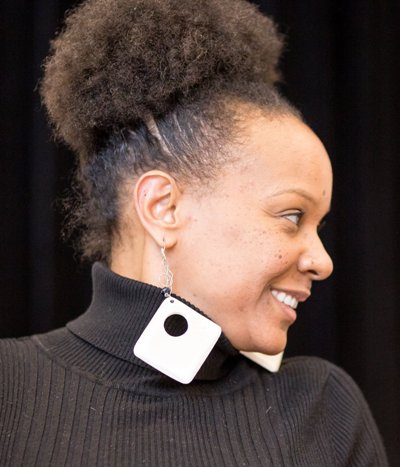 Which brings us straight to the company’s ambitious effort to revivify “Native Son” by getting permission from the Wright estate to create a brand-new adaptation – for a new generation, as Whiteside puts it. The new work has involved close collaboration between American Blues and co-producer Court Theatre.
Which brings us straight to the company’s ambitious effort to revivify “Native Son” by getting permission from the Wright estate to create a brand-new adaptation – for a new generation, as Whiteside puts it. The new work has involved close collaboration between American Blues and co-producer Court Theatre.
“We felt it would be huge for America to have a fresh look at Wright’s book,” says Whiteside. “Today most people know the story about this black man who wanted to do big things, wanted to transcend the way white society identified him simply as black. So we decided what the heck, and wrote to the Wright estate asking for permission. We used the word “please” several times. We were amazed and thrilled when they said yes.”
Whiteside’s co-conspirator was actor-playwright Nambi E. Kelley, an American Blues Ensemble member and author of the new version of “Native Son.”
 “Nambi loved the book growing up, and she did a ton of research,” says Whiteside. “The big challenge was to distill the novel in a theatrical way. How could we get the impact of the story out quickly, socking people in the stomach?
“Nambi loved the book growing up, and she did a ton of research,” says Whiteside. “The big challenge was to distill the novel in a theatrical way. How could we get the impact of the story out quickly, socking people in the stomach?
“The existing adaptation was very respectful of the novel. But it literally transferred dialogue from the novel to the stage, rather than re-interpreting the book as theater. And it was long, with two intermissions. Modern audiences do better with plays that run an hour and a half, two hours tops – and one intermission or none.”
Now American Blues had the rights and the writer; all it lacked was the resources to bring Kelley’s vision to the stage. Whiteside approached Court Theatre artistic director Charles Newell, who saw the potential and struck a deal.
“Court has a much bigger budget,” says Whiteside. “We paid for development, Court is paying for the production. It’s a true 50-50 collaboration, and it’s going to be fantastic.” Kelley’s re-imagining of “Native Son” opens Sept. 20 on the Court stage.
The season in brief:
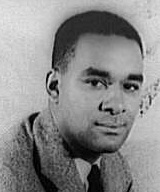 “Native Son,” adapted by Nambi E. Kelley from the novel by Richard Wright (World premiere co-production with Court Theatre on the Court stage, 5535 Elllis Ave., Sept. 20-Oct. 19): Wright’s monumental story follows a young black man caught in a downward spiral after he kills a young white woman in a brief moment of panic. It is is an unflinching portrait of what it means to be black in America and the poverty and feelings of hopelessness experienced by people in inner cities across the United States. “What is perhaps most remarkable about this story is that it’s still relevant today, but it shouldn’t be,” says Whiteside. “We could read a current story very similar this in the newspaper almost any day. We should have evolved from this as a society. It’s shocking to me.”
“Native Son,” adapted by Nambi E. Kelley from the novel by Richard Wright (World premiere co-production with Court Theatre on the Court stage, 5535 Elllis Ave., Sept. 20-Oct. 19): Wright’s monumental story follows a young black man caught in a downward spiral after he kills a young white woman in a brief moment of panic. It is is an unflinching portrait of what it means to be black in America and the poverty and feelings of hopelessness experienced by people in inner cities across the United States. “What is perhaps most remarkable about this story is that it’s still relevant today, but it shouldn’t be,” says Whiteside. “We could read a current story very similar this in the newspaper almost any day. We should have evolved from this as a society. It’s shocking to me.”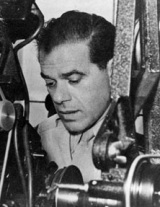 “It’s a Wonderful Life: Live in Chicago!,” based on the Frank Capra film from the short story by Philip Van Doren Stern, Nov. 23-Dec. 28 at the Greenhouse Theatre Center, 2257 N. Lincoln Ave.: For 13 years, the American Blues ensemble has revisited this holiday classic featuring Clarence, George, and the iconic characters of Bedford Falls — where a man who has lost faith in himself is reminded that the good he has done in life far outweighs his human fallibility. The story is retold through a 1940s radio broadcast of Capra’s holiday classic in a full-scale production with Foley sound effects, an original score and a cast of eight. In the spirit of this parable about the value of every life and shared goodness, after each performance milk and cookies are served.
“It’s a Wonderful Life: Live in Chicago!,” based on the Frank Capra film from the short story by Philip Van Doren Stern, Nov. 23-Dec. 28 at the Greenhouse Theatre Center, 2257 N. Lincoln Ave.: For 13 years, the American Blues ensemble has revisited this holiday classic featuring Clarence, George, and the iconic characters of Bedford Falls — where a man who has lost faith in himself is reminded that the good he has done in life far outweighs his human fallibility. The story is retold through a 1940s radio broadcast of Capra’s holiday classic in a full-scale production with Foley sound effects, an original score and a cast of eight. In the spirit of this parable about the value of every life and shared goodness, after each performance milk and cookies are served.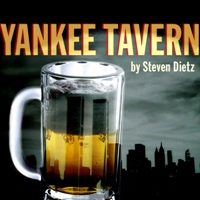 “Yankee Tavern” by Steven Dietz (Chicago premiere, Feb. 20-March 22, 2015, at the Greenhouse Theatre Center): The jukebox inside the Yankee Tavern stopped in the middle of “Bye, bye, Miss American Pie” as the first hijacked plane struck the north tower of the World Trade Center that Sept. 11. Inside the walls of this crumbling New York tavern, a young couple find themselves caught up in conversations of what happened that day and who is telling the truth. Dietz’s dramatic thriller is a fierce, funny and ultimately a work of mind-bending theatrical power. “This is really a story about the American people and what we’re allowed to know and what’s kept from us,” says Whiteside. “Steven Dietz’s play points out the many things about 9/11 that just don’t make sense. Dietz wrote it as a thriller, and the play has a kind of ‘Twilight Zone’ aspect. Our production takes an apolitical position, but the play itself insists: ‘Just tell us what happened that day.’”
“Yankee Tavern” by Steven Dietz (Chicago premiere, Feb. 20-March 22, 2015, at the Greenhouse Theatre Center): The jukebox inside the Yankee Tavern stopped in the middle of “Bye, bye, Miss American Pie” as the first hijacked plane struck the north tower of the World Trade Center that Sept. 11. Inside the walls of this crumbling New York tavern, a young couple find themselves caught up in conversations of what happened that day and who is telling the truth. Dietz’s dramatic thriller is a fierce, funny and ultimately a work of mind-bending theatrical power. “This is really a story about the American people and what we’re allowed to know and what’s kept from us,” says Whiteside. “Steven Dietz’s play points out the many things about 9/11 that just don’t make sense. Dietz wrote it as a thriller, and the play has a kind of ‘Twilight Zone’ aspect. Our production takes an apolitical position, but the play itself insists: ‘Just tell us what happened that day.’” “Side Man” by Warren Leight (April 30-May 24 at the Greenhouse Theatre Center): Spanning three decades, “Side Man” is the poignant story of a splintered family as told through the eyes of Clifford, the only son of Gene, a jazz trumpet player, and Terry, an alcoholic mother. Alternating between their New York City apartment and a smoke-filled music club, Clifford narrates the story of his broken family and his father’s singular identification with jazz. “Side Man” won the 1999 Tony Award for Best Play. “Every artist makes sacrifices,” says Whiteside. “Sometimes great art comes from people who have struggled and suffered incredible loss. And for some artists, the other people in their group of artists become their family. That’s something our ensemble can relate to. ‘Side Man’ is a memory play, like Tennessee Williams’ ‘Glass Menagerie,’ and we love it because it’s so deeply personal.”
“Side Man” by Warren Leight (April 30-May 24 at the Greenhouse Theatre Center): Spanning three decades, “Side Man” is the poignant story of a splintered family as told through the eyes of Clifford, the only son of Gene, a jazz trumpet player, and Terry, an alcoholic mother. Alternating between their New York City apartment and a smoke-filled music club, Clifford narrates the story of his broken family and his father’s singular identification with jazz. “Side Man” won the 1999 Tony Award for Best Play. “Every artist makes sacrifices,” says Whiteside. “Sometimes great art comes from people who have struggled and suffered incredible loss. And for some artists, the other people in their group of artists become their family. That’s something our ensemble can relate to. ‘Side Man’ is a memory play, like Tennessee Williams’ ‘Glass Menagerie,’ and we love it because it’s so deeply personal.”
Getting there:
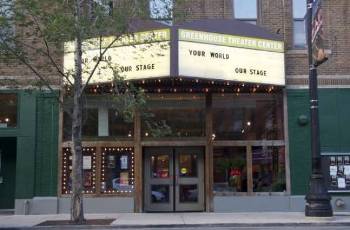 What began in 1985 as American Blues Theater was renamed American Theater Co. during the artistic directorship of Brian Russell (1997-2002). In 2009, after the appointment of PJ Paparelli as artistic director, philosophical differences led the company’s ensemble to depart en masse, regroup, reclaim their original name and start over as American Blues Theater, producing plays at Victory Gardens. Last season, the company moved into its new home, a 199-seat performing space at the Greenhouse Theatre Center, 2257 N. Lincoln Ave., in the Lincoln Park neighborhood.
What began in 1985 as American Blues Theater was renamed American Theater Co. during the artistic directorship of Brian Russell (1997-2002). In 2009, after the appointment of PJ Paparelli as artistic director, philosophical differences led the company’s ensemble to depart en masse, regroup, reclaim their original name and start over as American Blues Theater, producing plays at Victory Gardens. Last season, the company moved into its new home, a 199-seat performing space at the Greenhouse Theatre Center, 2257 N. Lincoln Ave., in the Lincoln Park neighborhood.
Related Links:
- American Blues Theater’s official website: Go to AmericanBluesTheater.com
- Review of George Brant’s “Grounded” at American Blues Theater: Read it at ChicagoOntheAisle.com
Tags: "It's a Wonderful Life", American Blues Theater, Court Theatre, Frank Capra, Greenhouse Theatre Center, Gwendolyn Whiteside, Nambi E. Kelley, Native Son, Richard Wright, Side Man, Steven Dietz, Warren Leight, Yankee Tavern

